The world is moving incredibly fast. And honestly, it is hard to believe that we are living in 2019 right now. Look around you, and you will witness technological marvels surrounding you. Be it the use of AI in daily life or introducing complete online privacy for everyone, yes, we have made massive advancements in our time.
And guess what, this New Year, the advancements are only destined to become more prominent.
Talking about things getting more prominent and larger than life, we all know big data is very much in discussion these days. Why do you ask? Well, raging popularity can be viewed as a reason; however, big data is more significant than what it appears to be. Tech marketers are using more data-driven marketing tactics to expand the business.
So, it can be safely assumed that big data is quite big this year. But are you aware of the Big data trends for 2019? Or are you entirely new to the concept of big data and want to know what it is and how it works? Curiosity is a blessing, and primarily when it revolves around a business-changing strategy, you need to know everything about it.
Big data is defined as the large volume of data which includes both structured and unstructured versions of data. Big data is called ‘big’ because these are too large for traditional data-processing application software. The primary purpose of big data is to analyze data sets relating to human behavior and communication, further revealing patterns and trends for the same.
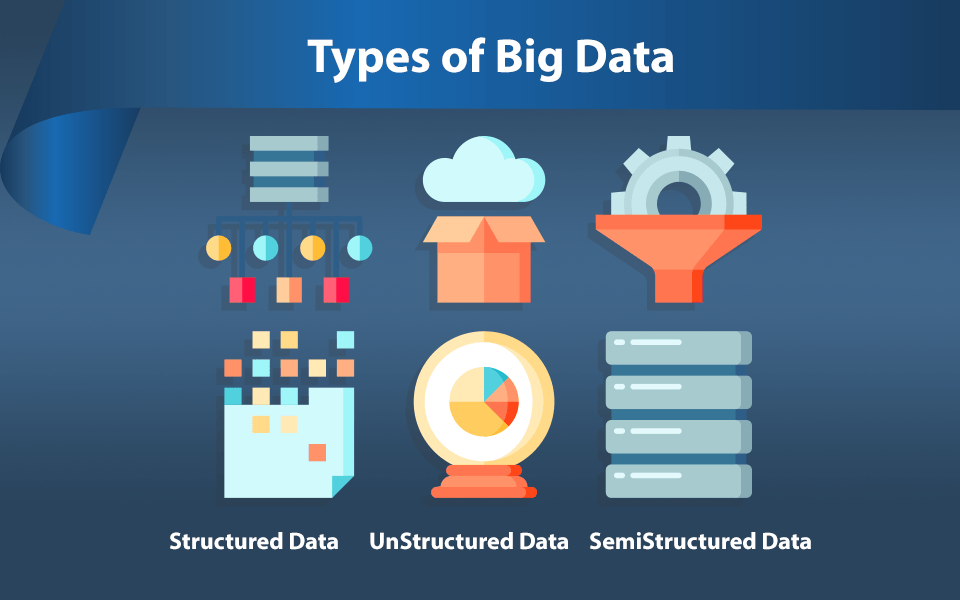
So, how does it help in the marketing circuit?
Well, big data is useful in several ways as it collates information including that of the target audience, their buying habits, further converting the potential audience into your customers.
Big data helps analyze and unveil valuable information that can be extremely useful to businesses. There are certain branches of marketing (and sales) that has been using big data to boost their business.
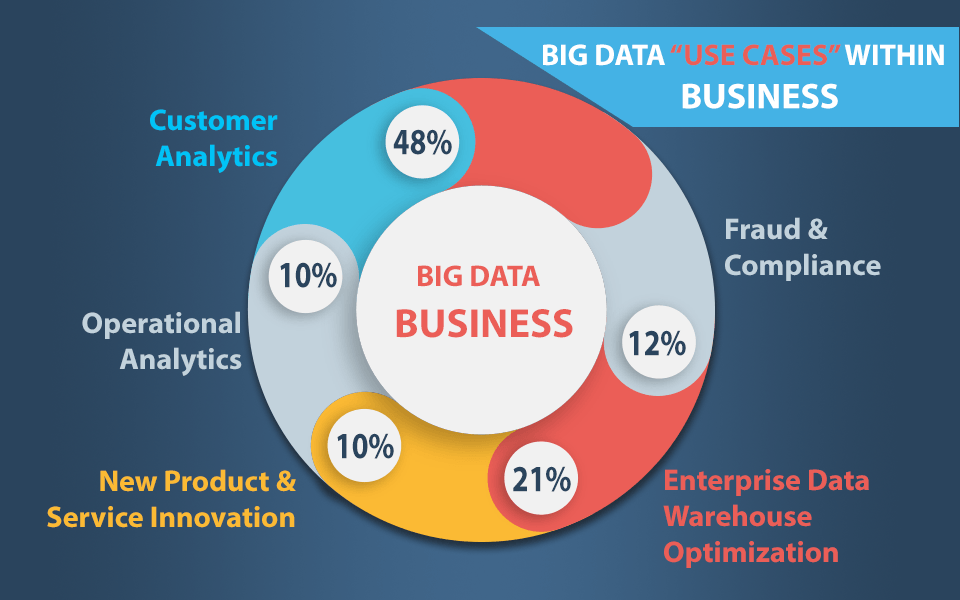
Customer Analytics (48%), Fraud & Customer Compliance (12%), Operational Analytics (21%), Enterprise Data Warehouse Optimization (10%) and New Product & Service Innovation (10%) are some of the most branches that have taken to the use of big data.
Also known as Customer Value Analytics (CVA), it has allowed marketing organizations revolutionize the way business is conducted. Using big data right allows businesses to find out which content type is the most effective in influencing customers at every stage of the customer journey funnel. Big data has also allowed marketing companies to formulate strategies that enhance their conversion rates, ROI, sales and customer engagement as well.
Big data is expanding day-by-day, and with time, the big data has become an essential part of marketing organizations.
Insight into How Big Data is Revolutionizing the Marketing Industry
There are various ways in which big data is changing (rather revolutionizing) the marketing industry. Some of the points are highlighted as given below:
- Allows marketing experts to formulate the best pricing strategies by analyzing big chunks of data. It will enable experts to optimize prices without resulting in a loss
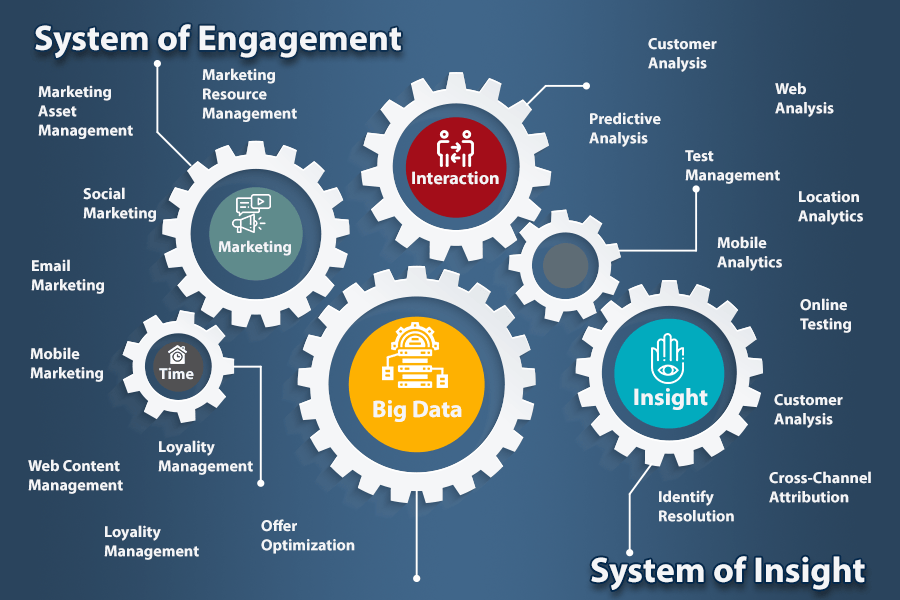
- Big data is changing the substantial way how companies excel in customer representation. This will allow them to get better insights into a customer’s preference.
- The section of contextual marketing, which due to its complexities was often ignored or not performed correctly, is now accessible due to the integration of big data. It provides the foundation to create scalable insights into the system.
- Big data increases a marketer’s ability to look beyond the campaigns and focus more on customer satisfaction, helping build successful relationships with the same
- According to 58% of the CMOs (Chief Marketing Officer), big data has the most significant impact on SEM (Search Engine Marketing), email marketing and mobile marketing.

- 54% of expert marketers believe that within the next few years, big data will become essential to all aspects of marketing
- Owing to big data, marketers have a better insight into what their key drivers are
It is thus easy to comprehend that big data has an enormous impact on the marketing landscape; it is to stop nowhere. At least not any time soon.
Also Read: Ways Big Data is Revolutionizing the Marketing Industry
Understanding the Big Data Trends for 2019
Now we all know how important big data is for marketing organizations. But the point here is that to apply big data to the existing system; it is pivotal to have a proper idea about how to implement the same.
According to experts, big data is going to be massive in 2019 and to ensure that you stay up-to-date with it, you need to know all about the trends that are currently determining big data.
For your convenience, we have here highlighted some of the significant data trends that have been forecasted for 2019.
- Predictive Analytics
- Finance
- Healthcare
- Hospitality
- Pharmaceuticals
- Manufacturing Industries
- IOT Networks
Predictive Analytics is not a new thing because it has been around for a very long time. But its true potentials are being discovered by the organizations only recently. The significance of predictive analytics, when it comes to helping the prediction of customer behavior, is massive.
Predictive Analytics gives customized insights, which can be used to lead the organization to purchase and promote cross-sell opportunities.
It helps the organization generate new customer responses in several diverse domains like
Predictive analytics can be extremely convenient for businesses who want to use big data for better understanding of customer perspective.
Internet of Things (IoT) is defined as any computing device(s) that is connected via the internet to collect, sending and receiving data. Not only smartphones but devices including laptops, tablets, smart TVs, and intelligent speakers are all considered to the Internet of Things (IoT).
Even with the common usage of smartphones and laptops, the IOT network is ever expanding and gaining its popularity very fast. In a world that is primarily controlled by the internet, it is only apparent that IoT is gaining a massive significance. With the arrival of Amazon Alexa and Google Assistant, it can be safely declared that these are a part of our daily lives. Giving a mere instruction to Alexa like playing a song or listening to podcast makes everything convenient for you.

In a business landscape, these devices are generating a lot of information to help formulate the tech marketing strategies including
– Tracking patterns
– Latest Trends
– Customer analysis
– Product improvement
By collecting large sets of data from the devices, foreseeable actions can be taken by tech marketers.
IOT is one of the fastest growing trends in the circuit right now, and according to expert tech marketers, by 2020, IOT is expected to generate a revenue of more than $300 billion. A study in 2016 revealed that more than 4.7 billion devices are connected to the internet and by 2021, the numbers will expand to 11.6 billion.
3. Dark Data
No! Dark data has nothing to do with scary things.
It just refers to all the data that most companies can’t use for anything- analytics, decision making or even deciphering insights into various marketing arenas. It can be outdated data or can also be an incomplete compilation. These data have no use whatsoever and hence termed ‘dark.’
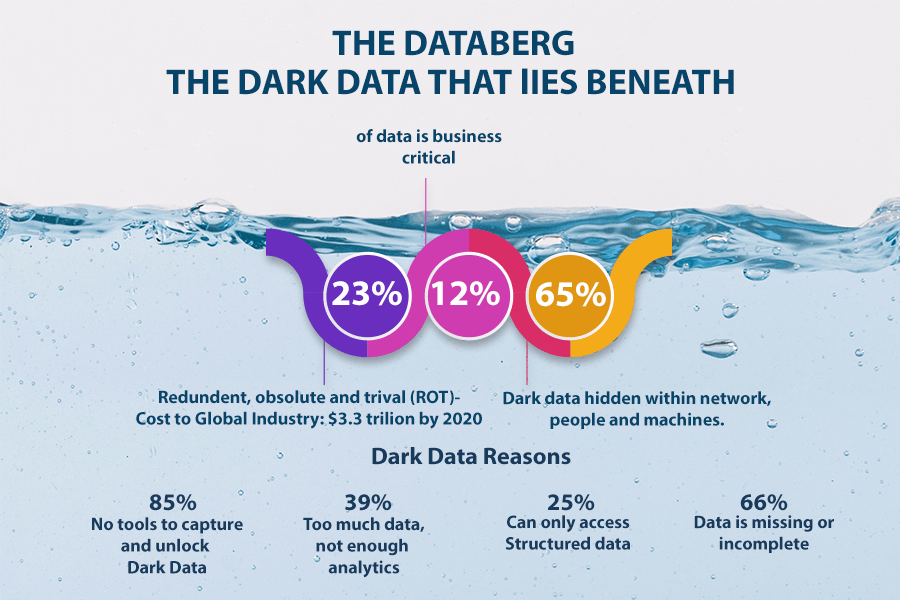
The existence of dark data can be attributed to various reasons. From the absence of analytics to systems having access to only structured data, the presence of dark data seemed inevitable.
But as big data analytics is on the rise, there is a high chance for the analog database to be converted into an understandable digital form. The introduction of analytics also makes migration of data to the cloud easier. This eliminates the possibility of data being lost in the process. It also lightens the potential security risk of data becoming, well, dark data.
Also Read: Increasing Sales Using Big Data
4. Quantum Computing
You must have heard about quantum computing. If you have not, quantum computing is defined as the method of computing using quantum-mechanical phenomena such as entanglement. It is a big thing when it comes to big data analytics.

In spite of the existence of numerous technologies, analyzing massive sets of data was not only challenging but also time-consuming.
With the introduction of quantum computing, this massive problem finds the perfect solution. Not only does it reduce the time needed to make decisions, but the results are more precise as well. Be it data encryption or solving complex problems, each of these can be completed more efficiently.
Tech moguls like Google and IBM are working to develop the world’s first quantum computer. A company called 1QB is already in the process of applying quantum computing and has become the first quantum computing software company in the world.
5. Open Source Software and Tools (Instead of Licensed Versions)
With the introduction of 2019, open source tools are on the rise. And when it comes to big data, all the major problems are being solved with the opening of the same. Open source tools are cheaper than licensed tools, making it a more affordable option for the small and medium-sized enterprises to further gain more benefits from the big data technologies.
Also, the open source tools are available on the cloud, making them easily accessible as compared to the ones which come with a license. The new tools are just an upgrade to the already existing ones.
Tech marketers are already rooting massively on the free open source tools and consider this to be a massive step for big data.
Conclusion
Big data is full of opportunities. And in the dynamic world of marketing, more so than ever. With its immense opportunities, this is the chance to make your business much bigger. Tech Marketers are using Big Data more to plan the marketing strategies. So, this New Year, boost your business to the next level of success with Big Data.
So, what do you think about big data and its presence in the marketing landscape? What about the trends that are to dominate big data in 2019? Share your thoughts with us. Leave a comment or subscribe to get regular updates on big data and similar topics.

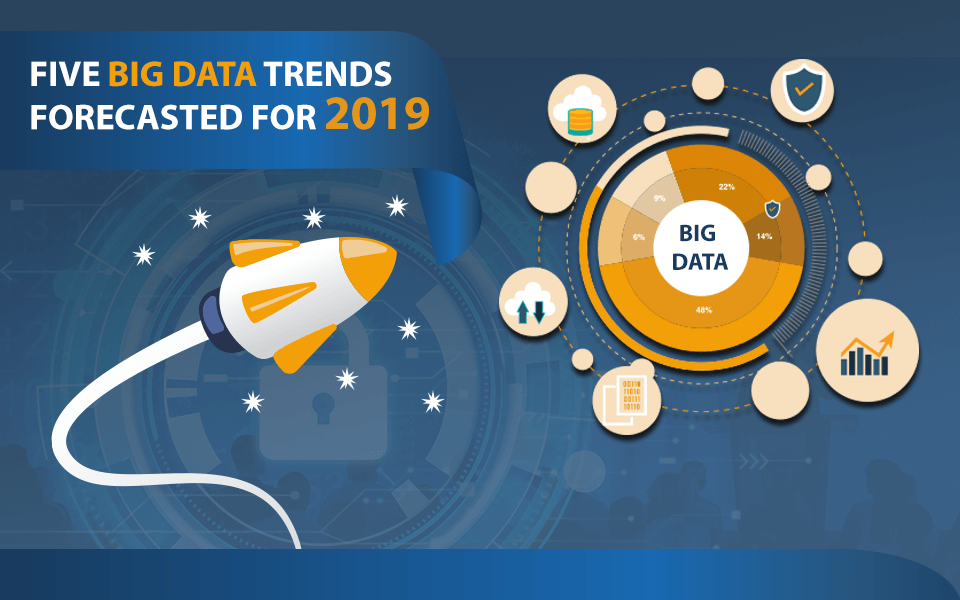

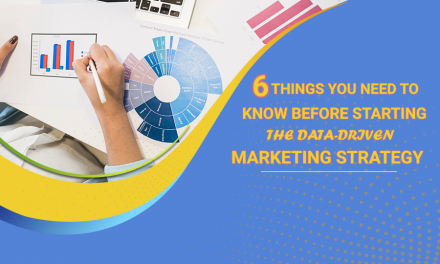
Recent Comments